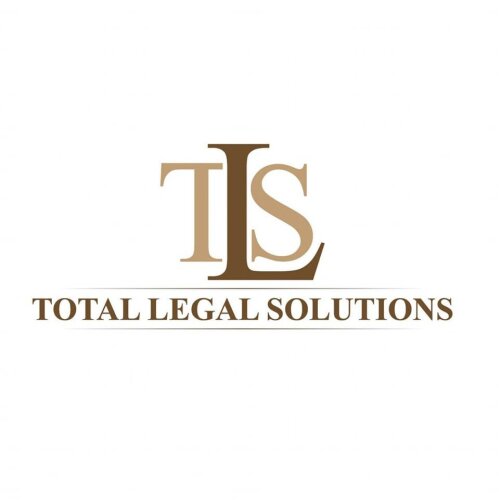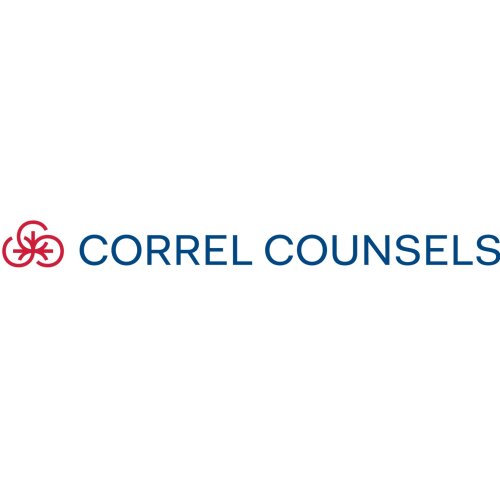Best Energy, Environment & ESG Lawyers in Maldives
Share your needs with us, get contacted by law firms.
Free. Takes 2 min.
Or refine your search by selecting a city:
List of the best lawyers in Maldives
About Energy, Environment & ESG Law in Maldives
Energy, Environment, and ESG (Environmental, Social, and Governance) law in Maldives covers a growing field concerned with sustainable development, environmental protection, renewable energy, and responsible business practice. As a nation comprised of over a thousand islands with low elevation, Maldives is particularly vulnerable to climate change and environmental impacts. The government pays special attention to environmental conservation, marine protection, and encouraging renewable energy sources. Businesses are expected to comply with local laws and increasingly, with international standards for ESG. Legal frameworks regulate activities that may impact the environment, outline renewable energy incentives, and set requirements for corporate governance and social responsibility.
Why You May Need a Lawyer
Whether you are an individual, company, investor, or organization, several situations may require the expertise of a lawyer experienced in Energy, Environment, and ESG matters in Maldives:
- Applying for, or renewing, environmental permits or clearances for projects
- Assessment of environmental impact for development or tourism activities
- Ensuring compliance with renewable energy projects and policies
- Addressing environmental regulatory investigations, penalties, or disputes
- Resolving conflicts regarding land use, marine protection, or natural resources
- Navigating ESG reporting or disclosure requirements for businesses
- Handling environmental liability relating to pollution or waste management
- Advising on Sustainable Development Goals (SDGs) integration in projects
- Participating in or contesting tenders for government renewable energy initiatives
Legal help can clarify rights and obligations, prevent costly errors, and safeguard interests in these complex and evolving areas.
Local Laws Overview
Maldives has a distinct set of laws and regulations governing energy, environment, and ESG concerns. Here are some key aspects:
- Environmental Protection Act: This act provides the legal framework for environmental conservation, pollution control, and management of natural resources.
- Environmental Impact Assessment (EIA) Regulation: Major development projects must undergo an EIA process to anticipate and mitigate negative environmental effects.
- Renewable Energy Policies: Maldives encourages solar, wind, and other renewable energy projects through incentives and regulatory support, overseen by the Ministry of Environment, Climate Change and Technology.
- Marine and Coastal Protection: Laws restrict harmful activities in marine protected areas, coral reefs, and coastal zones to preserve biodiversity.
- Waste Management Regulation: Companies and individuals must manage, reduce, and properly dispose of waste, particularly in tourism and industrial sectors.
- ESG and Corporate Governance: ESG requirements are increasingly integrated into corporate practices, investment criteria, and public reporting, in line with international trends.
Violations or non-compliance can lead to significant fines, project delays, or legal challenges. Staying updated with these regulations is crucial in Maldives' rapidly evolving environmental and energy sectors.
Frequently Asked Questions
What is an Environmental Impact Assessment and who needs it?
An Environmental Impact Assessment (EIA) is a legally required process for evaluating the potential environmental risks and benefits of a proposed project. In Maldives, most development projects including resorts, infrastructure, and energy installations must submit an EIA for approval before starting work.
Who regulates environmental and energy issues in Maldives?
The Ministry of Environment, Climate Change and Technology is the primary government body overseeing environmental and renewable energy matters. Specific regulations may also involve the Environmental Protection Agency and other local authorities.
Are there incentives for renewable energy in Maldives?
Yes, the government offers incentives such as tax benefits, grants, or support for investment in solar and other renewable energy sources, especially for projects that support national sustainability goals or reduce reliance on imported fuels.
What happens if a business violates environmental regulations?
Violations can result in fines, suspension of activity, revocation of licenses, or legal proceedings. The severity depends on the extent of harm or non-compliance and may also affect a company's reputation and eligibility for future projects.
How does ESG impact companies operating in Maldives?
ESG considerations are increasingly important for access to international markets, investments, and sustainable operations. Companies are expected to meet standards for environmental care, social responsibility, and good governance, as reflected in legal or industry guidelines.
Is environmental litigation common in Maldives?
Environmental disputes are increasing, especially concerning coastal development, pollution, and marine protection. NGOs, affected communities, and regulatory agencies may pursue legal remedies if environmental harm or negligence occurs.
What rules exist for waste management in Maldives?
There are strict rules governing waste separation, disposal, and recycling. Businesses, particularly in the tourism sector, must adhere to prescribed methods for handling solid and hazardous waste to avoid pollution.
How do marine protection laws affect development?
Projects near reefs, lagoons, and other sensitive ecosystems must comply with additional restrictions to minimize damage. Non-compliance may result in project denial or significant penalties.
Can individuals report environmental violations?
Yes, members of the public can report suspected violations to the Environmental Protection Agency or Ministry of Environment, which may trigger investigation and enforcement action.
How can I ensure my business complies with ESG standards?
A legal specialist can review your operations, policies, and reporting systems to align with both local laws and international ESG expectations. Ongoing compliance is essential for risk management and sustainable growth.
Additional Resources
If you need information or assistance regarding Energy, Environment, and ESG issues in Maldives, the following resources can be helpful:
- Ministry of Environment, Climate Change and Technology
- Environmental Protection Agency (EPA) Maldives
- Maldives Energy Authority
- Maldives Law Society
- UNDP Maldives (for sustainability and ESG programs)
- Chambers of Commerce and Industry for business ESG guidance
These organizations provide guidance documents, forms, updates on regulations, and contact points for inquiries or complaints.
Next Steps
If you need legal assistance with Energy, Environment, or ESG matters in Maldives, consider taking these steps:
- Assess your situation and identify specific legal questions or challenges you are facing
- Gather all relevant documents, permits, and prior communications
- Contact a licensed Maldivian lawyer specializing in energy, environment, or ESG law
- Consult with the relevant government authorities if necessary as a preliminary step
- Follow your lawyer's advice on compliance, dispute resolution, or regulatory processes
- Stay informed about updates in energy, environment, and ESG regulations to ensure ongoing compliance
Addressing these matters proactively with qualified legal support can help avoid complications, protect your interests, and contribute positively to sustainable practices in Maldives.
Lawzana helps you find the best lawyers and law firms in Maldives through a curated and pre-screened list of qualified legal professionals. Our platform offers rankings and detailed profiles of attorneys and law firms, allowing you to compare based on practice areas, including Energy, Environment & ESG, experience, and client feedback.
Each profile includes a description of the firm's areas of practice, client reviews, team members and partners, year of establishment, spoken languages, office locations, contact information, social media presence, and any published articles or resources. Most firms on our platform speak English and are experienced in both local and international legal matters.
Get a quote from top-rated law firms in Maldives — quickly, securely, and without unnecessary hassle.
Disclaimer:
The information provided on this page is for general informational purposes only and does not constitute legal advice. While we strive to ensure the accuracy and relevance of the content, legal information may change over time, and interpretations of the law can vary. You should always consult with a qualified legal professional for advice specific to your situation.
We disclaim all liability for actions taken or not taken based on the content of this page. If you believe any information is incorrect or outdated, please contact us, and we will review and update it where appropriate.
Browse energy, environment & esg law firms by service in Maldives
Maldives Attorneys in related practice areas.
Browse energy, environment & esg law firms by city in Maldives
Refine your search by selecting a city.
















